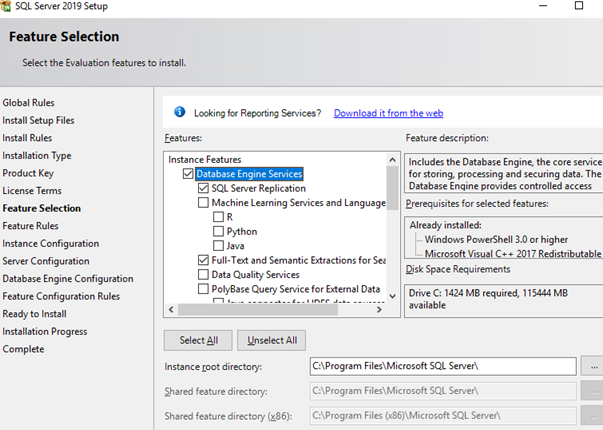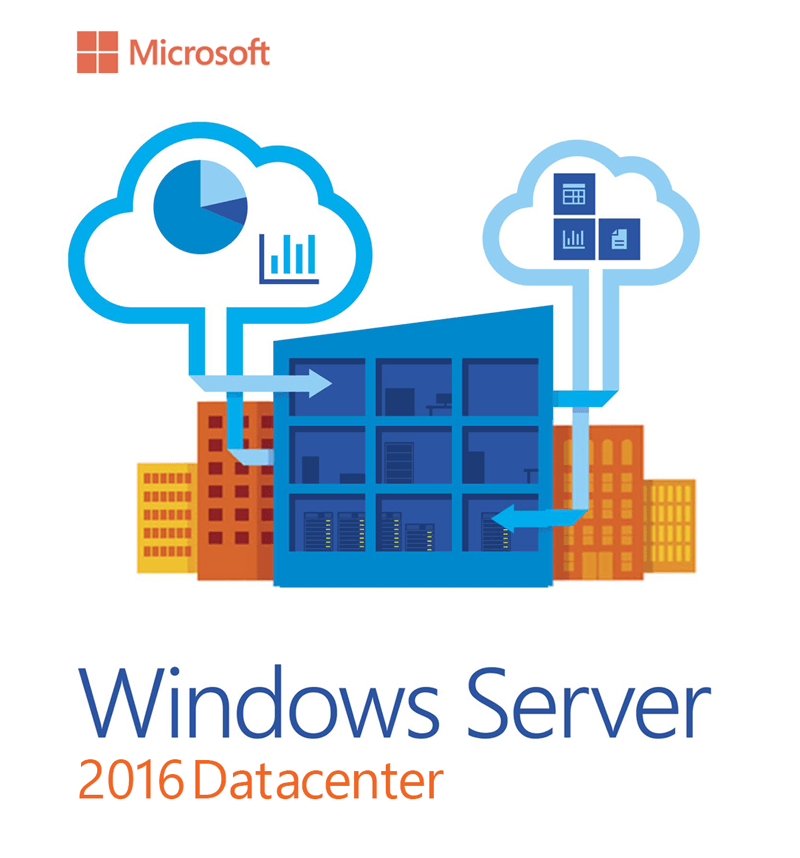

- #MICROSOFT SQL SERVER 2016 EXPRESS LIMITS INSTALL#
- #MICROSOFT SQL SERVER 2016 EXPRESS LIMITS FULL#
- #MICROSOFT SQL SERVER 2016 EXPRESS LIMITS WINDOWS#

Automatic instances of LocalDB provide seamless instance management. One automatic instance of LocalDB exists for every version of LocalDB installed on the user’s computer. They are created and managed automatically for the user and can be used by any application. Automatic instances of LocalDB are public.LocalDB supports two kinds of instances: Automatic instances and named instances.
#MICROSOFT SQL SERVER 2016 EXPRESS LIMITS WINDOWS#
LocalDB only allows local queues for Service Broker.Īn instance of LocalDB owned by the built-in accounts such as NT AUTHORITY\SYSTEM can have manageability issues due to windows file system redirection Instead use a normal windows account as the owner. LocalDB cannot be a merge replication subscriber.

Contained databases follow the metadata and tempdb collations rules defined by Contained Database Collations. Database-level, column-level, and expression-level collations are supported normally. The instance collation for LocalDB is set to SQL_Latin1_General_CP1_CI_AS and cannot be changed. For more information about the SqlLocalDb utility, see SqlLocalDB Utility. The SqlLocalDb utility can create new instances of LocalDB, start and stop an instance of LocalDB, and includes options to help you manage LocalDB. User database files are stored where the user designates, typically somewhere in the C:\Users\\Documents\ folder.įor more information about including LocalDB in an application, see the Visual Studio documentation Local Data Overview, Walkthrough: Creating a SQL Server LocalDB Database, and Walkthrough: Connecting to Data in a SQL Server LocalDB Database (Windows Forms).įor more information about the LocalDB API, see SQL Server Express LocalDB Instance API Reference and LocalDBStartInstance Function. For example C:\Users\\AppData\Local\Microsoft\Microsoft SQL Server Local DB\Instances\LocalDBApp1\. The system database files for the database are stored in the users' local AppData path which is normally hidden. Once installed, LocalDB is an instance of SQL Server Express that can create and open SQL Server databases.
#MICROSOFT SQL SERVER 2016 EXPRESS LIMITS INSTALL#
The LocalDB setup program uses the SqlLocalDB.msi program to install the necessary files on the computer. SQL Server Express LocalDB should be used in place of the SQL Server Express user instance feature which is deprecated. An instance of the SQL Server Database Engine started as the LocalDB has the same limitations as SQL Server ExpressĪn instance of SQL Server Express LocalDB is managed by using the SqlLocalDB.exe utility. Multiple Database Engine processes can be started and will all use the same binaries. There can be only one installation of the LocalDB binary files for each major SQL Server Database Engine version.

Select LocalDB on the Feature Selection/Shared Features page during installation. LocalDB is an option when installing SQL Server 2016 Express. Install LocalDB through the installation wizard or by using the SqlLocalDB.msi program.
#MICROSOFT SQL SERVER 2016 EXPRESS LIMITS FULL#
Developer Tools can provide developers with a SQL Server Database Engine that lets them write and test Transact-SQL code without having to manage a full server instance of SQL Server. When connecting, the necessary SQL Server infrastructure is automatically created and started, enabling the application to use the database without complex configuration tasks. Once LocalDB is installed, you can initiate a connection using a special connection string. LocalDB installation copies a minimal set of files necessary to start the SQL Server Database Engine. It is available on SQL Server 2016 Express with Advanced Services. Microsoft SQL Server 2016 Express LocalDB is a feature of SQL Server Express targeted to developers.


 0 kommentar(er)
0 kommentar(er)
